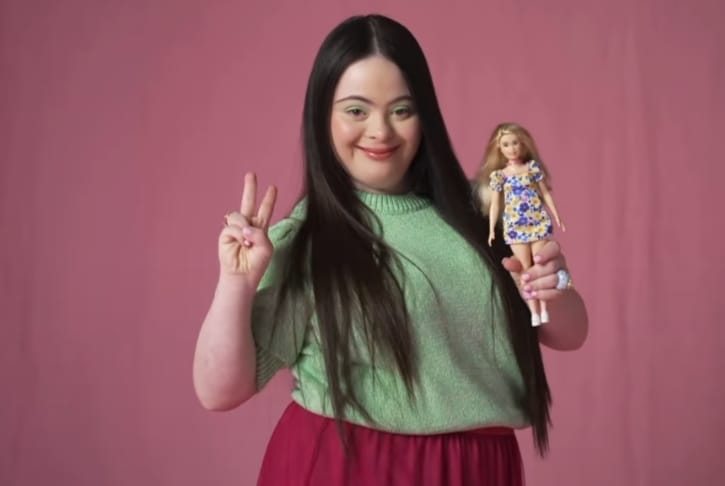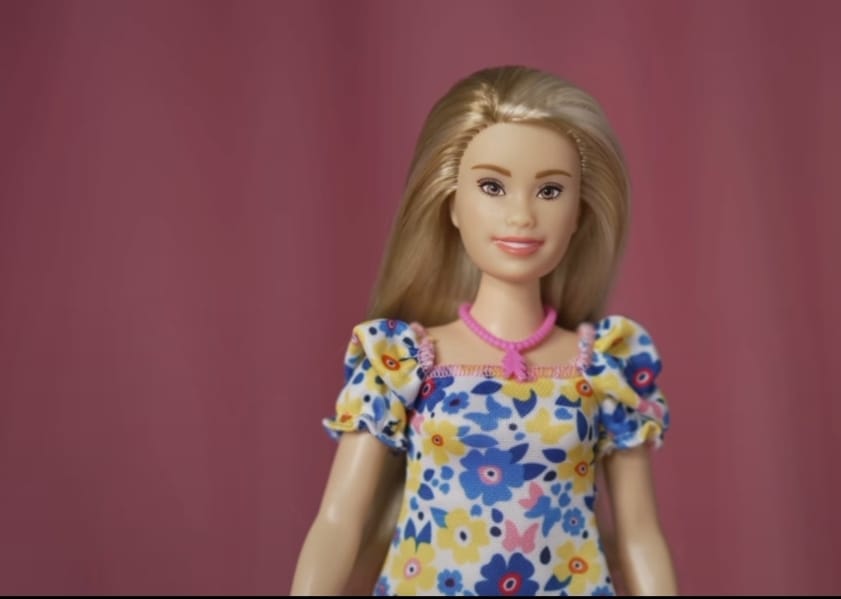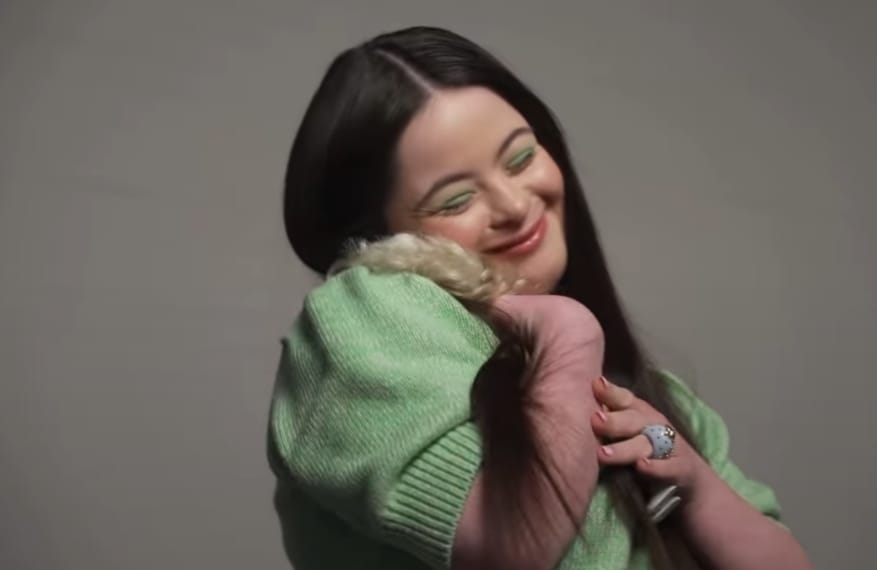The launch of a new Barbie doll from toymaker Mattel has been greeted with absolute love and joy by teenage British model Ellie Goldstein. “It looks like me. It’s beautiful. And I love it to pieces… I love it!” said Goldstein with a huge smile as she received the diversity Barbie doll.
A teenager with Down Syndrome, Goldstein is also one of the most famous faces in Britain because she is a top cover girl, featured in nothing less than the May 2023 issue of British Vogue. Now she has been joined by a new diversity Barbie, whose features represent a person with Down Syndrome. In a video on her Instagram page, Goldstein happily posed with the Barbie doll and gave it a big hug.
The Down Syndrome Barbie doll has been launched as part of Mattel’s new Barbie Fashionista line, which includes a doll with a wheelchair, a doll with a prosthetic leg, and a doll with hearing aids. The idea is to have more inclusivity in a line of toys that has long been criticised for setting impossible beauty standards for young girls — also, they were Caucasian beauty standards, as all Barbie dolls were tall, slender, white-skinned, and long blonde-haired.
The company began working on physical and racial diversity in 2015, which was also the year when its sales figures looked dire, having been dropping since 2011. Along came the Barbie Fashionista dolls, with eight different skin tones and different hair options. A year later, in 2016, fans saw curvy Barbie, tall Barbie, and petite Barbie. The doll then developed a socially relevant persona, talking about COVID-19 quarantine, isolation, racism, and other issues. Sales figures shot up again, with USD1.5 billion in sales in 2020.
What Ellie Goldstein said — “It looks like me!” — is what clearly drives young consumers. Launching the Barbie representing a person with Down Syndrome last week, Mattel said that the doll would “allow even more children to see themselves in Barbie”.
The toymaker said that in order to get the details right, the Barbie team had worked with the New York-headquartered National Down Syndrome Society (NDSS), and that the final doll design and facial features were reviewed by a medical professional.
“This Barbie serves as a reminder that we should never underestimate the power of representation,” said Kandi Pickard, NDSS president and CEO, in a news release. “It is a huge step forward for inclusion and a moment that we are celebrating.”





